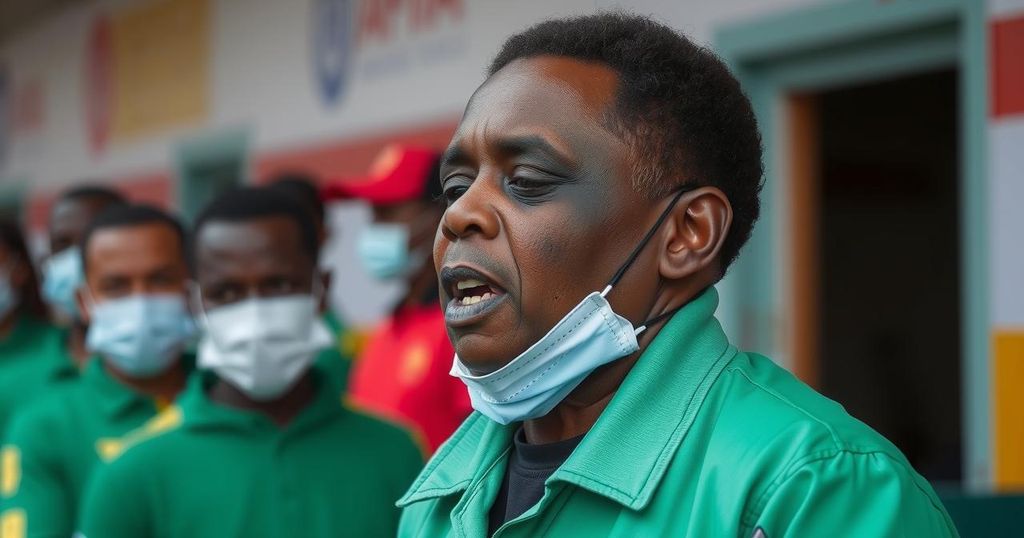Comoros recently conducted elections for lawmakers, overshadowed by opposition claims of lacking transparency. President Azali Assoumani’s son, Nour, is running for a seat, while reports emerged of late-opening polling booths and improvised setups compromising voter privacy. The ruling party, the CRC, is expected to dominate again, amidst past allegations of electoral fraud and violent unrest following previous elections.
The Indian Ocean nation of Comoros recently held elections for its lawmakers amidst significant opposition boycott allegations regarding the election’s transparency. President Azali Assoumani’s eldest son, Nour El-Fath Azali, aged 39, who serves as the secretary general, is a candidate representing a district near the capital, Moroni. Reports indicated that several voting stations experienced delays due to material shortages, prompting observers to note improvised setups that compromised voter privacy.
Nour, who was previously a close adviser to his father, is perceived by critics as holding a position akin to a de facto prime minister, having been vested with substantial powers since his recent appointment. President Assoumani secured reelection in January after a contentious vote that incited violent protests. While he expressed gratitude for a peaceful campaign period, the opposition’s decision to participate this time aimed to avoid a repeat of prior boycotts that allowed the ruling party, the Convention for the Renewal of the Comoros (CRC), to dominate without challenge.
Instances of electoral discrepancies were reported, such as voters displaying their fingers lacking the mandatory ink stain intended to prevent multiple voting. The CRC is anticipated to maintain significant control in parliament as many candidates face no opposition. Approximately 340,000 registered voters are eligible to elect thirty-three parliamentary members in a two-round balloting process, with a secondary vote scheduled for February 16, 2024. The past elections have been clouded by allegations of fraud and violence, culminating in a fatality and numerous injuries following the disputed January election results.
The recent elections in Comoros highlight the country’s ongoing political tensions, particularly surrounding electoral integrity and opposition participation. The ruling president, Azali Assoumani, has faced criticism for perceived authoritarianism and manipulation of the electoral process, evidenced by the controversy surrounding his son’s rise to power. The 2020 legislative elections spurred significant opposition boycotts, which led to a setback for democratic engagement. Given the recurrent allegations of electoral fraud and the dubious conduct of past elections, the current political climate remains fraught with skepticism regarding the legitimacy of electoral processes in Comoros.
In conclusion, the legislative elections in Comoros are marked by significant opposition skepticism towards transparency and fairness amidst allegations of electoral manipulation. The ascent of Nour El-Fath Azali within the political structure raises concerns about the consolidation of power in the Assoumani family. Despite efforts from some opposition candidates to engage in the electoral process, the overarching sentiment remains one of distrust, reflective of the challenges facing the democratic framework in Comoros.
Original Source: www.arabnews.com






